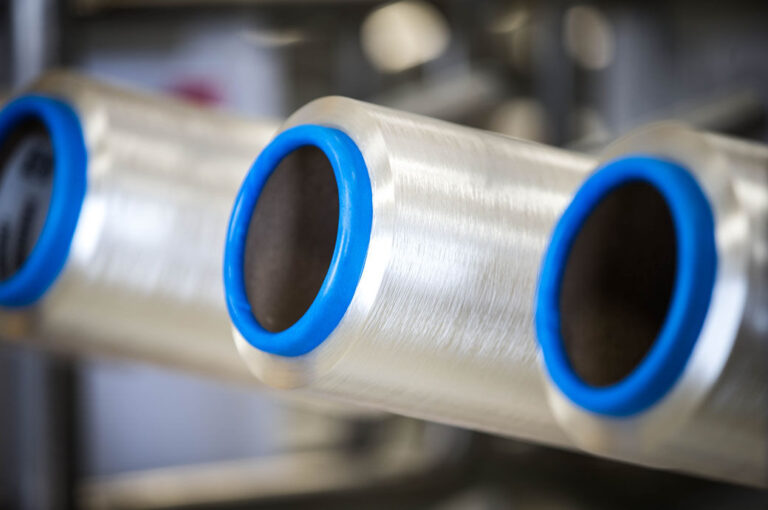
[ad_1]
The report was produced in accordance with the standards of the Global Reporting Initiative (GRI) and the Austrian Sustainability and Diversity Improvement Act (NaDiVeG), and was audited by KPMG Austria Wirtschaftsprüfungs- und Steuerberatungsgesellschaft.
The Lenzing Group has released its Sustainability Report 2022, which highlights the company’s efforts to promote circularity in the textile and nonwoven industries.
Lenzing’s corporate strategy review resulted in the roadmap ‘Better Growth’, which will guide the company’s sustainable specialty fibres initiatives in an unpredictable economic environment.
“Sustainability is a core component of our business strategy. This report details our combined achievements in environmental, economic and social aspects and our continuous commitment to creating a future in which circularity is the norm,” said Robert van de Kerkhof, member of the managing board at Lenzing Group.
A comprehensive review of the corporate strategy was also conducted in the reporting year. ‘Better Growth’ was designed as a roadmap for the next five years with a focus on maintaining a leading role in the field of sustainable specialty fibres in an unpredictable economic environment. As a company, Lenzing has the dual aim of being commercially successful and providing a positive contribution to society. Consequently, Lenzing will continue to pursue its profitable growth path following the successful implementation of the two key projects in Thailand and Brazil, sharpen its focus on sustainable and high-quality premium fibres for textiles and nonwovens, and further advance the transition from a linear to a circular business model, as stated in the report.
Lenzing also made further progress in meeting its climate targets in the reporting year. The launch of the new lyocell plant in Prachinburi (Thailand) in March marked a key milestone on Lenzing’s path to achieving net-zero emissions by 2050. The site is wholly powered by sustainable energy derived from biomass and is the largest of its kind in lyocell fibre production. Lenzing also began to convert its site in Nanjing (China) to green electricity in September. As of 2023, the site is almost entirely powered by green electricity, which will reduce carbon emissions by 100,000 tonnes annually.
The new pulp mill in Brazil, which feeds surplus bioenergy into the Brazilian grid, represents the largest investment that Lenzing has ever made in dissolving wood pulp supply for wood-based fiber production. This has led to further investments in sustainable plantations that provide the requisite raw materials. In 2023, 70,000 hectares of a sustainably managed plantation will be required to ensure stable production in the long term. Lenzing was already highly successful in this regard in 2022, achieving 57,000 hectares by the end of the year. This will allow Lenzing to make further progress in meeting its climate targets by minimizing the environmental risks involved in procuring raw materials.
The installation of the largest ground-mounted photovoltaic system in Upper Austria at the Lenzing site marked another strategic milestone for the company in October 2022. The system converts sunlight into electricity, which is one of the most cost-effective means of producing green energy. Lenzing also signed an electricity supply contract with the green electricity producer Enery and Energie Steiermark to construct another photovoltaic system in Styria, Austria. The electricity produced will begin supplying the Lenzing site at the end of 2023.
Three global sustainability rating agencies recognised Lenzing’s unwavering commitment to reducing its carbon footprint as well as its efforts to meet the United Nations’ sustainable development goals in 2022. Of the 15,000 companies scored worldwide by the non-profit organization CDP, Lenzing was one of only twelve to be awarded an A rating for environmentally responsible management in three categories (climate change, water security and forestry) in December 2022. MSCI confirmed the company’s AA rating in the same month on the basis of its strong performance relative to the sector average.
EcoVadis awarded platinum status to Lenzing, ranking it among the top one per cent of all companies rated worldwide in this sector. Its extensive evaluation recognized Lenzing’s efforts in the four main areas of corporate social responsibility, the environment, fair working conditions and human rights, ethics and sustainable procurement.
In addition, Lenzing took first place in Canopy’s Hot Button ranking. The Canadian non-governmental organisation assesses global producers of cellulosic fibres with regard to responsible wood and pulp procurement, innovation and traceability. Canopy’s ranking also evaluates the companies’ use of alternative commodities as well as their achievements in protecting ancient and endangered forests. The Hot Button ranking confirms that Lenzing’s practices are sustainably anchored.
Lenzing also took second place in the Transformational Climate Change Solutions category of the Financial Times 2022 Transformational Business Awards. The highly efficient pulp mill of the LD Cellulose joint venture in Brazil received a special commendation for its contribution to a more sustainable textile industry by providing the necessary pulp to produce wood-based fibres.
Fibre2Fashion News Desk (RR)
[ad_2]
Source link